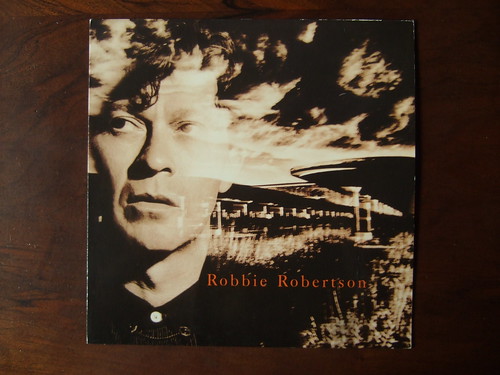Robbie Robertson’s 16 Essential Songs
Robbie Robertson #RobbieRobertson

The Band, “Chest Fever” (1968)
Robertson’s cackling guitar counters the pomp of Garth Hudson’s organ intro and the hefty chords in the verses. Richard Manuel sings about a tantalizing, bewildering woman. In the chorus, as “my mind unweaves/I feel the freeze down in my knees,” organ, piano and guitar capture the vertigo in woozy stereo syncopation, topped by groaning lead guitar licks that insist on comedy.
The Band, “The Night They Drove Old Dixie Down” (1969)
Robertson wrote “The Night They Drove Old Dixie Down” based on the Southern memories of Helm, the only American in a band with four Canadians. The song captures wounded pride, multigenerational loyalties and lingering bitterness in a mournful processional. Helm’s swelling, extended drum rolls hint at military funerals, and after each chorus, there’s a solemn pause, as if facing the next verse is almost too much to bear.
The Band, “Up on Cripple Creek” (1969)
A happy trucker narrates “Up on Cripple Creek,” praising Bessie, his free-spirited hookup in Lake Charles, La. “If I spring a leak, she mends me/I don’t have to speak, she defends me,” Helm exults. A ratchety groove grows out of Robertson’s opening guitar licks, and before the end, Helm is yodeling with glee.
The Band, “King Harvest (Has Surely Come)” (1969)
In “King Harvest,” a farmer faces calamities — drought, fire, a horse gone mad — and finds his last hope in joining a union, as sharecroppers did during the Depression. His rising desperation comes through as Manuel sings the verses, and in the subdued choruses, his love of the land endures.
The Band, “The Shape I’m In” (1970)
The beat is peppy, almost eager, and Hudson’s note-bending organ interludes and outro are downright jaunty. But Manuel sings about a mounting collection of woes: loneliness, jail, homelessness. Robertson’s guitar provides brief hints of the blues, but this narrator is just going to have to muddle through.
The Band, “Stage Fright” (1970)
Performing in the spotlight is “Just one more nightmare you can stand” in “Stage Fright,” a reflection on trauma and fame that may have been autobiographical. “For the price that the poor boy has paid/He gets to sing just like a bird,” Danko sang with a quaver, leaping into falsetto for a few notes after “bird.” The music pushes the fearful singer onstage and the song understands the compulsion to perform despite it all: “When he gets to the end, he wants to start all over again.”